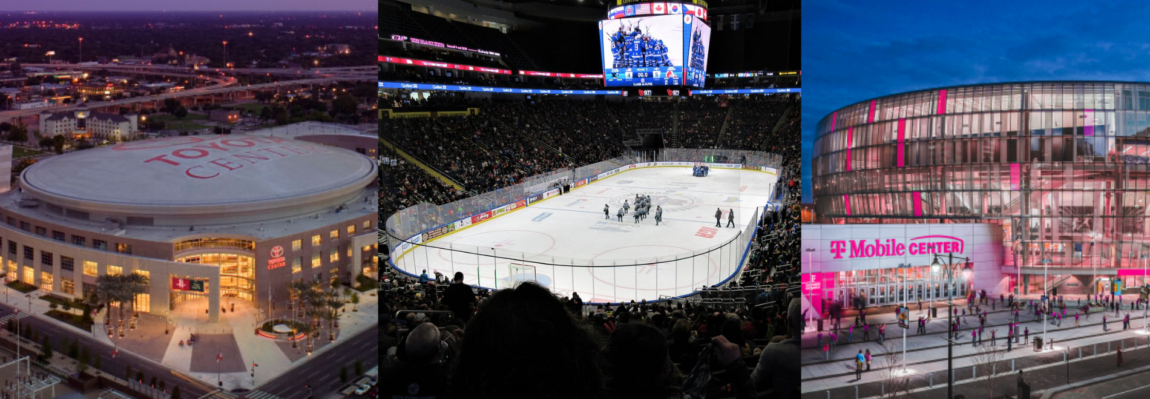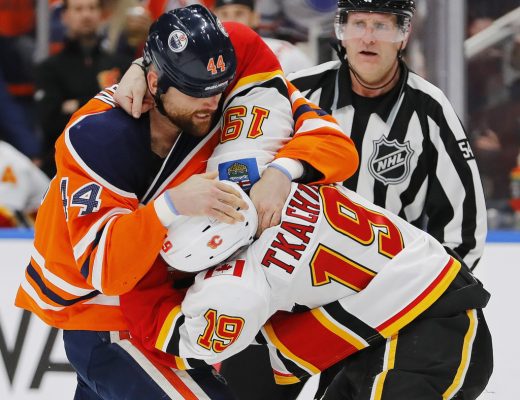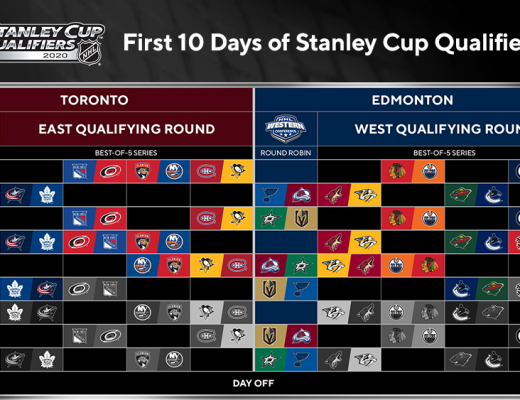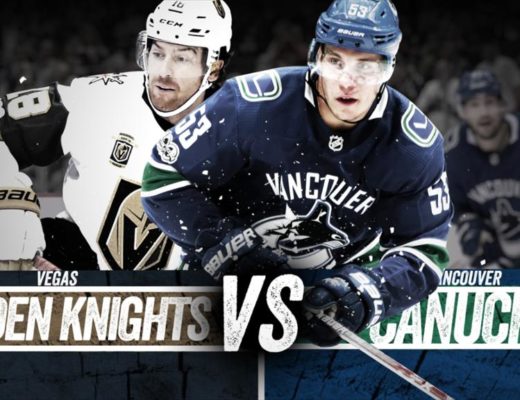When the modern-day hockey fan thinks of NHL Expansion, likely two things come to mind. Vegas and Seattle. And even the most casual hockey fans are familiar with the homerun the National Hockey league hit when the Vegas Golden Knights hit the scene as the league’s 31st franchise. But what does that new-found success mean for expansion teams going forward?
A New Standard for NHL Expansion
What began with a massive tragedy that hit Las Vegas only days before the Golden Knights’ inaugural game, and culminated in a postseason run cut only three wins short of a Stanley Cup, no future NHL expansion club will ever have quite the headline-grabbing opening season that we saw in Las Vegas. However, Bill Foley’s “band of misfits” set a new norm for what an expansion franchise could look like for the NHL.
A major catalyst in the Vegas success story was a brand new set of rules for the 2017 expansion draft. These rules were by far the most favorable guidelines given to any expansion team in the history of NHL, and they came at a price.
For a cool $500 million, the new team from Las Vegas was able to draft a squad of players that at the time seemed like a whole lot of no-names (minus a couple of star players – notably Marc-Andre Fleury from Pittsburgh). And while even after the draft was over and a brand new roster was created, the hockey world still had its doubt about the competitive ability of the Golden Knights.
What was left out of the headlines, for the most part, was the fact that nearly every General Manager in the league was forced to either give up a player he valued as an asset for his club down the road or strike a deal with the Golden Knights to keep a player on the roster that he could not protect under the new draft rules.
Each of the existing 30 NHL clubs at the time was only allowed to either protect seven forwards, three defensemen, and a goaltender, OR a total of eight players and a goaltender, which teams would generally only use if they wanted to protect a 4th defenseman. These models became known as the 7-3-1 and the 4-4-1.
Never before faced with expansion rules of this caliber, matched with the fact that the last expansion draft had taken place 17 years prior, it appears that at least a few GMs were unsure of how to best manage their roster in a way that would produce limited disturbance to the future of their club.
Side deals were negotiated that inevitably led to teams losing multiple players in exchange for keeping one player that they believed to be of higher value.
One notable example of this scenario playing out involves the Minnesota Wild, who made a deal with the Golden Knights that they would select forward Erik Haula from their roster and get Alex Tuch as well. The Golden Knights sent back a conditional 3rd round pick in the 2018 draft.
Haula and Tuch both ended up being serviceable players for the Golden Knights in their inaugural campaign. Haula scored 29 goals during the 2017-18 season and finished with a total of 55 points while Tuch, in his first full NHL season scored 15 goals and a total of 37 points leading him towards a seven-year, $33.25 million contract extension that he would sign with the club in October 2018.
What Does This Mean for Seattle?
It has been widely speculated that most general managers that were coerced into side deals with the Golden Knights in 2017 have learned from their mistakes and are going to be much more inclined to lose a single player from their roster instead of making a side deal that has the potential to send away two bonafide NHLers.
And with the cap anticipated to be somewhere around 88 million heading into the 2021 expansion draft, there was a good chance that GMs would be able to structure their rosters in such a way that they would be prepared to deal with expansion rules identical to those that constructed such a powerhouse roster for the Golden Knights.
However, with the outbreak of COVID-19, the league announced that the cap would remain flat at $81.5 million through at least the 2020-21 season, a massive development for the Seattle organization which will likely now have more negotiating power at its entry draft in 2021.
Where to Next?
With the success of the Golden Knights and the promising future of the to-be-named club in Seattle, there has hardly been a better time to bring a new franchise into the fold.
It took 17 years for the league to expand after bringing Columbus and Minnesota in at the turn of the century, and after seeing less-than-stellar results from those franchises, it wasn’t until Vegas that the hockey world believed a model existed that could make an expansion team truly competitive from day one.
So which city is next?
If you follow NHL expansion enough, you will know that Quebec City, Houston and Kansas City have all been potential destinations for new or relocating franchises. And I think even Atlanta, after two failed attempts at sustaining an NHL franchise, has the potential to be a hockey hub under the new expansion rules.
But which cities are REAL candidates for the NHL?
Well, at least a few main criteria need to be met to sustain a professional sports franchise. An arena that is relatively new and is made to host a hockey team. This is an important distinction because the league has been burned badly by the Barclays Center experiment and all the negative publicity it has received for trying to force a hockey team in the New York Islanders into an arena that was very clearly not built for hockey.
Both Houston and Quebec City have arenas ready to host NHL teams. Houston’s Honda Center has already spent time as a home to the AHL’s Houston Aeros from 2003-2013 and currently hosts the NBA’s Houston Rockets. In Quebec City, the Videotron Centre is home to the QMJHL’s Quebec Remparts, but has a seating capacity of 18,259, easily enough to sustain an NHL franchise.
Kansas City has the newly renamed T-Mobile Center which has a seating capacity of 18,972 and has played host to preseason NHL games in the past. But one immediate concern with Kanas City, as is a similar issue with Quebec City, is its proximity to an already successful NHL club.
The St. Louis Blues are only about 3 1/2 hours from Kansas City and the Montreal Canadiens are slightly under 3 hours from Quebec City. This proximity has already hurt Quebec City in the past when attempting to remedy issues with the NHL over TV market size, despite having a devout local fanbase. Issues with the Canadian Dollar as well have led the league towards options in the States as recent as 2016 when a bid from Quebec City was turned aside for a much more promising option in Las Vegas.
One Team or Two?
In my opinion, an ideal scenario for the NHL would be to have two viable bids for an NHL franchise come in at the same time. Now that the league has a balance of 32 teams, 16 in the East Conference, and 16 in the Western Conference, breaking that even number is not necessarily something the league would push for.
Houston Rockets owner Tilman Fertitta has shown interest in bringing a hockey team to Houston in the past, and considering the size of the Houston market, it would be a no-brainer to expand the NHL to southeastern Texas.
However, uncertainty with the state of the Arizona Coyotes potentially has something to do with why there hasn’t been any forced action in Texas. For years, beginning in 2009, the League and commissioner Gary Bettman have been attempting to find stable ownership in Arizona amongst a myriad of issues.
From weak ownership groups to struggles with the government in both Pheonix and Glendale (where the team currently resides) to the desperate need for a state-of-the-art arena in an area of the city that is most logical from a fan and revenue perspective, the issues have been seemingly endless in Arizona.
However, if one thing has come from the struggles with the Coyotes, it is clear that Bettman has a strong desire to make the Arizona market work.
And in June 2019, the league announced that billionaire Alex Meruelo would become the next owner of the team, with former owner Andrew Barroway holding onto a minority stake. In the year since Meruelo has taken control, there have been signs of growth in terms of raw numbers. But the atmosphere around the team appears to have changed for the better as well.
On June 8th, 2020 long time associate of Meruelo’s, Xavier Gutierrez, was hired as president and CEO. Both Meruelo and Gutierrez are the first Latino owner/president duo in league history, and they have made it very clear that home for the Coyotes is in Arizona.
With things seemingly stabilized in Arizona, pending a new arena deal, the only other franchise that could see potential relocation is the Florida Panthers. And with Bettman’s known distaste for relocation, particularly in larger American markets, it seems unlikely that Florida will be on the move.
The Panthers have a lease with the BB&T Center in Sunrise that will potentially keep the club in South Florida until 2028, and considering the Panthers have been a mediocre team at best since the early years of the club’s existence, I do believe there is a strong desire from everyone involved to see what a competitive hockey team can do in a market that reaches Fort Lauderdale and Miami.
Time Will Tell
As Seattle hits the scene, and life under COVID-19 comes and goes (hopefully), I believe the next natural step for the NHL is to consider new potential homes for its product, particularly considering the league and NHL Players Association just finished hashing out a new Collective Bargaining Agreement that lasts through the 2025-2026 season and includes likely participation in two Winter Olympic games.
For a league that is widely known as the 4th-most popular sport in the United States, creativity has been a key to growing the NHL brand. Being the first professional sports team in Las Vegas created a “hockey first” city in the middle of the desert, and when hockey arrives in Seattle it will dominate the winter market in a city devoid of an NBA franchise.
Whatever the NHL is planning next, expect it to take an angle that positions itself for success. The league has learned its lessons in the past from faulty ownership groups, and arenas not made to last. Look for whatever the league explores to have a strong foundation built to succeed. Because with the right group at the helm, the NHL now has a formula with enough power to create a competitive team from the getgo.
Interested in reading more? Head over to our blog section!




